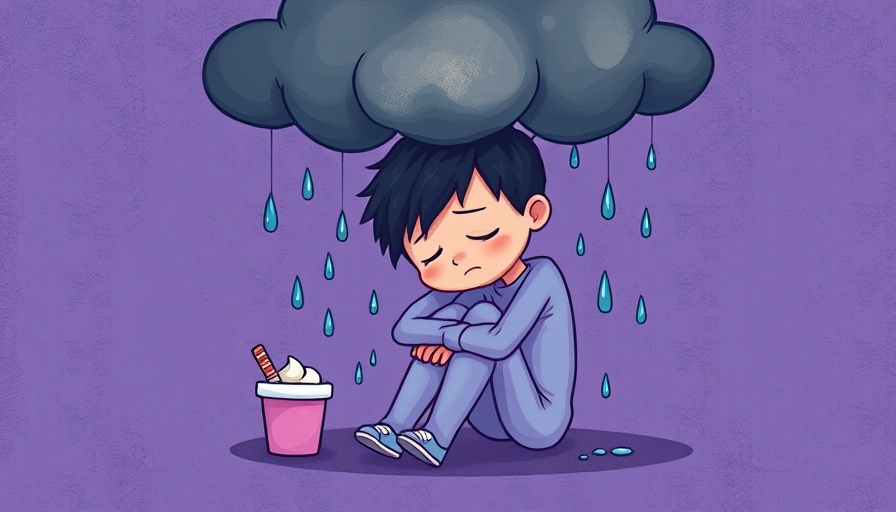
Understanding Loneliness: A Common Yet Overlooked Emotion
In an era where social media connects us more than ever, feelings of loneliness seem paradoxically common. Many individuals experience these emotions, regardless of their social or relationship status. Notably, loneliness is not just about physical isolation but often results from a lack of meaningful emotional connections. Whether you are single, dating, or married, the yearning for genuine companionship is a shared human experience.
Why It's Important to Destigmatize Loneliness
Loneliness is frequently stigmatized, equated with self-pity or personal inadequacy, which can prevent individuals from openly discussing their feelings. However, recognizing loneliness as a universal emotion can liberate us from shame. Understanding that feeling lonely does not reflect your worth or ability to love yourself is essential for emotional health. Allowing yourself to feel this way can lead to better self-awareness and ultimately, stronger connections with others.
From Isolation to Connection: Steps to Overcome Loneliness
Combatting loneliness begins with acknowledging it. Here are practical steps that can help individuals foster connections:
- Be Honest About Your Emotions: Acknowledging and accepting your loneliness can be the first step toward addressing it. Allow yourself to feel this way without judgment.
- Reach Out: Whether it’s a friend you haven’t spoken to in a while or a family member, making the first move can rekindle relationships. A simple text or call can bridge that gap.
- Engage in Community: Look for local groups centered around your interests, whether they be sports, arts, or volunteering. Shared activities can lead to newfound friendships.
- Practice Self-Compassion: Treat yourself with kindness. Engage in activities that reinforce your self-worth, like journaling or mindfulness.
Finding Beauty in Connections: The Value of Authentic Relationships
Authentic relationships enrich our lives. They provide support, understanding, and companionship that can help combat feelings of loneliness. Strong relationships are marked by vulnerability, trust, and the willingness to invest time and energy.
To facilitate these connections, focus on being present and authentic during interactions. Surrounding yourself with those who lift you up is crucial. Research shows that positive social interactions can significantly enhance mental well-being and even physical health.
Future Trends: The Rise of Community-Based Wellness
As the awareness of mental health grows, many organizations are recognizing the importance of community in combating feelings of loneliness. Future initiatives are likely to emphasize collaborative programs that focus on building connections among individuals in various settings—schools, workplaces, and neighborhoods.
For example, programs may include intentional social events, workshops on emotional intelligence, and peer support groups that aim to mitigate isolation. The goal is not merely to connect people but to foster environments where conversations about loneliness can take place openly.
Empowering Yourself: The Key to Breaking Cycles of Loneliness
Understanding loneliness and actively working against its effects can transform your life. By recognizing the issue and seeking solutions, it's possible to cultivate a fulfilling and connected existence.
Consider this: embracing your loneliness can cultivate empathy and understanding in your interactions, allowing for deeper, more meaningful connections. As you explore ways to build relationships—both with yourself and others—you will initiate a cycle of healing and vulnerability that enriches your life and the lives around you.
If you’re ready to take action and shift your focus from loneliness to community, start today by reaching out to someone you trust. You might find that many others share similar feelings, and together you can lift each other up towards healthier relationships.
 Add Row
Add Row  Add
Add 




Write A Comment